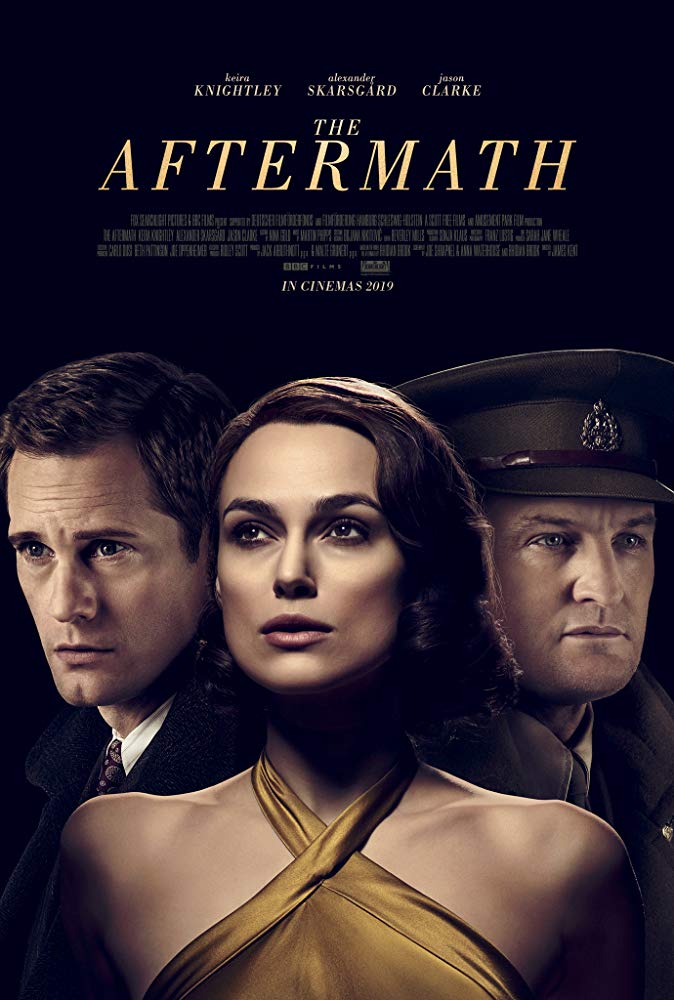 I’m not normally one for period dramas but I was intrigued by the basic premise of The Aftermath: former enemies forced to reconnect on various levels of humanity in the immediate aftermath of World War Two. If that had indeed been the driving narrative, The Aftermath might have presented a fascinating exploration of a story rarely (if ever) told on the big screen. Alas, the movie merely claims a unique setting for a standard, superficial love story about two grieving strangers who find comfort in each other’s arms, sacrificing one relationship for another. It’s not a bad story; it just represents a missed opportunity to tell a better one.
I’m not normally one for period dramas but I was intrigued by the basic premise of The Aftermath: former enemies forced to reconnect on various levels of humanity in the immediate aftermath of World War Two. If that had indeed been the driving narrative, The Aftermath might have presented a fascinating exploration of a story rarely (if ever) told on the big screen. Alas, the movie merely claims a unique setting for a standard, superficial love story about two grieving strangers who find comfort in each other’s arms, sacrificing one relationship for another. It’s not a bad story; it just represents a missed opportunity to tell a better one.
The Aftermath stars period-melodrama aficionado Keira Knightley (Colette, Atonement, Pride and Prejudice, Anna Karenina) as Rachael Morgan, a woman who joins her British Colonel husband Lewis (Jason Clarke, Mudbound, Zero Dark Thirty) in 1946 Hamburg, Germany, where he’s been tasked with rebuilding the bombed-out city. They are put up in the fancy home of an attractive German widower Stefan Lubert (Alexander Skarsgård) and his troubled teenage daughter Freda (Flora Li Thiemann) who are granted permission to move into the attic rather than face relocation to a camp for displaced Germans. Not surprisingly, there’s unease among the house-mates, and the household staff, due to bitter feelings about the war and what the future holds.
And yet… unease quickly yields to passion for Rachael and Stefan, turning The Aftermath into a sudsy melodrama about stolen moments, betrayal and impossible choices.
Knightley, Skarsgård and Clarke are an extremely watchable and talented trio, but their characters aren’t developed nearly as well as they should be; that goes double (or triple) for the clichéd supporting characters who only serve to advance story beats that prove predictable rather than profound.
The Aftermath is adapted from a book of the same name by Rhidian Brook, one of three writers credited on the screenplay. I haven’t read the book, so I don’t know if it does a better job of fleshing out the characters and evoking deeper themes. I suspect that might be the case.

